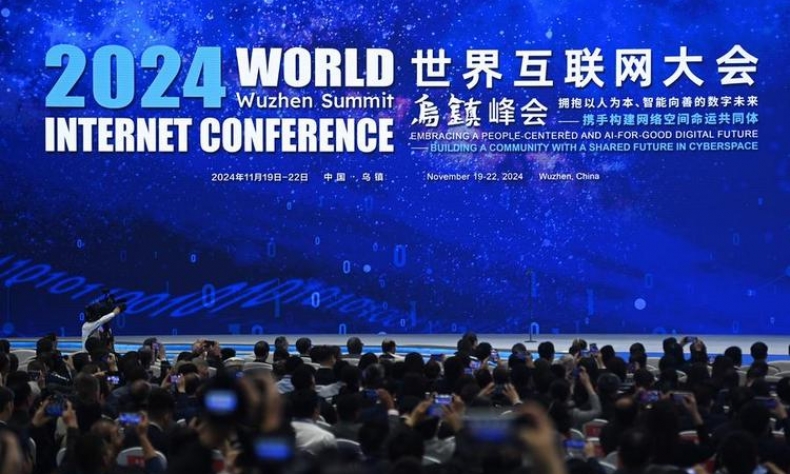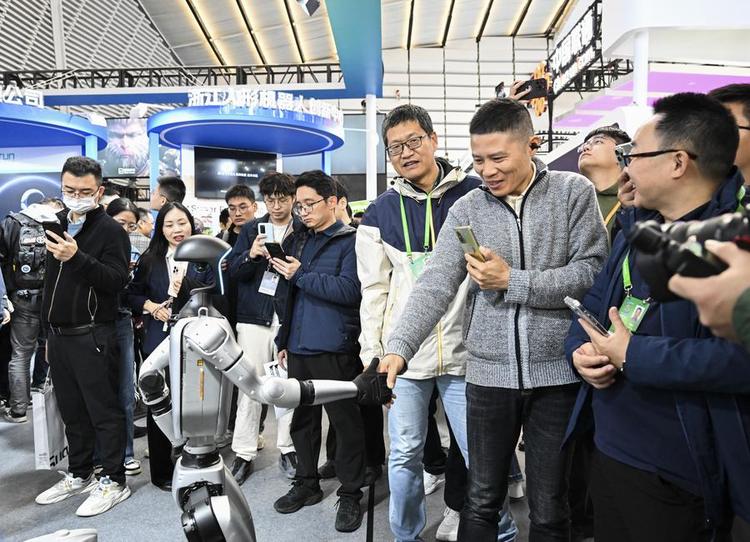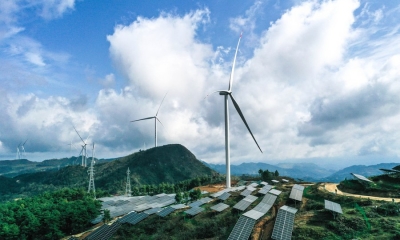WIC 2024: A Catalyst for Global Digital Transformation and AI Collaboration

By advancing the concept of a ‘shared future in cyberspace,’ China envisions a more inclusive, interconnected digital realm that prioritizes global cooperation over competition.
China’s World Internet Conference (WIC), a cornerstone of its vision for global internet technology, connectivity and governance, has sharpened its focus this year on artificial intelligence (AI), reflecting its ambition to lead in this transformative arena.
The WIC is an annual event held in Wuzhen, a water town in east China’s Zhejiang Province. This year’s summit, taking place from November 19 to 22, has adopted the theme “Embracing a People-Centered and AI-for-Good Digital Future.” This reflects China’s determination to actively participate in discussions about AI’s role in humanity’s future. The event delves into AI’s sweeping impact on societies, economies, and global systems, seeking to position China as a central force in shaping the ethical and technological frameworks of AI governance. By promoting its concept of a “shared future in cyberspace,” the conference highlights China’s belief in AI as a tool for collective progress rather than geopolitical division.
As the summit enters its second decade, China reaffirms its leadership in fostering global collaboration on digital innovation. Positioning itself at the forefront of global AI discourse, China is advocating for an inclusive framework that merges innovation with shared values. Through this initiative, China reiterates its role as both a technological powerhouse and a proponent of a community-driven, balanced approach to the digital future.
At the heart of this year’s agenda is the concept of “new quality productive forces,” a hallmark of China’s development vision that integrates human labor, technology, and infrastructure to fuel social and economic progress. The accompanying Light of Internet Expo exemplifies this ambition. Showcasing advancements from domestic big names such as Huawei, Baidu, Alibaba, Tencent, and iFlytek, the expo corroborates China’s leadership in AI-driven solutions, including algorithmic innovations, intelligent connected vehicles, and cybersecurity. As usual, this year’s event has also attracted massive global participation, with representatives from Microsoft, IBM, Kaspersky, and Infosys among the 665 enterprises from 53 countries and regions. In addition to the displays of humanoid robots, hydrogen-powered drones, and AI-generated content products, the expo highlights China’s broader ambition: to redefine global digitalization while fostering cross-border collaboration.

Analysts emphasize the profound contributions of China’s internet sector to global economic momentum, presenting milestones that affirm its role as a driver of technological advancement. Attendees are exploring development trends, combining innovation with shared progress, as Beijing seeks to anchor itself at the forefront of a cooperative and equitable AI future. Over the past decade, the WIC Wuzhen Summit has become a platform for showcasing China’s remarkable progress in the internet and AI sectors. This year, the summit pivots to one of the most pressing issues of our time: how to govern the transformative – and potentially disruptive – power of artificial intelligence.
As AI accelerates the digital economy, it also risks entrenching global inequalities, particularly for nations in the Global South striving to achieve sustainable development goals. China argues that the misuse of AI, coupled with hegemonic attitudes and a Cold War mentality seeping into cyberspace, threatens to amplify the digital divide. Such a trajectory could reduce AI to a privilege of the wealthy, deepening economic imbalances and sidelining the voices of developing nations. A robust, inclusive governance framework is urgently needed. At the heart of China’s approach is a “people-centered” vision, emphasizing that AI must serve the common good. The country’s call for a community with a shared future in cyberspace seeks to dismantle monopolies, prevent data exploitation, and create equitable opportunities for all. By championing principles of consultation, shared benefits, and equal sovereignty, Beijing envisions a cyberspace that fosters security, cultural exchange, and innovation for everyone. China’s message is clear: replace cyber hegemony with collaboration. By offering this alternative, the WIC Summit stands as a beacon for addressing today’s digital challenges and ensuring that technological progress benefits humanity.
Over the past decade, China has positioned itself as a trailblazer in the digital economy, with its scale soaring from 11 trillion yuan ($1.51 trillion) in 2012 to nearly 54 trillion yuan in 2023. Fueled by cutting-edge internet applications, a vast network of netizens, and leadership in artificial intelligence, China’s digital ascent offers an inspiring vision for the future. It’s a vision that resonates globally, particularly among developing nations weary of the hierarchical cyberspace governance championed by wealthier powers. China’s annual WIC Wuzhen Summit has emerged as a platform for redefining global digital governance. Rooted in the principles of equality, mutual benefit, and sustainability, it seeks to dismantle the asymmetries in cyberspace and foster collaboration among nations. Outcomes from the summit have garnered widespread recognition, emphasizing collective wisdom and shared progress. China’s approach is clear: leverage its digital prowess to help countries accelerate their cyberspace and digital economy journeys, fostering a spirit of cooperation and shared growth.
The past decade at Wuzhen represents more than technological innovation – it symbolizes China’s contributions to internet governance and its growing role as a responsible global player. Looking ahead, Beijing is poised to amplify its influence, deepen international consensus, and ensure that cyberspace serves humanity equitably. By advancing the concept of a “shared future in cyberspace,” China envisions a more inclusive, interconnected digital realm that prioritizes global cooperation over competition.
The article reflects the author’s opinions, and not necessarily the views of China Focus.
 Facebook
Facebook
 Twitter
Twitter
 Linkedin
Linkedin
 Google +
Google +





